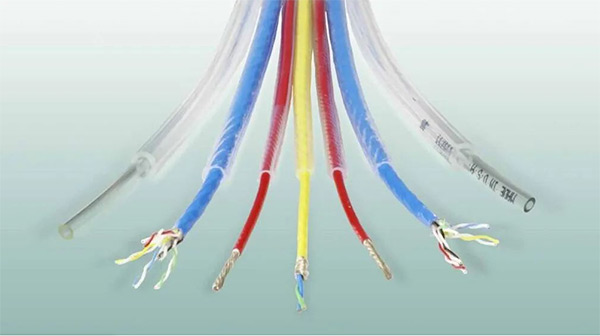Time:2024-11-08 Browse: 138

Good welding skills are crucial in the wiring harness industry as they ensure reliable and durable electrical connections. In this industry, wire harnesses are key components used to transmit signals and power in various types of machinery and equipment, from automobiles to industrial machines. Poor welding can lead to weak joints, which can lead to electrical failures, intermittent connections, and even safety hazards due to short circuits or overheating. Ensuring that the solder joints are strong, clean, and properly insulated helps maintain the integrity and service life of the wiring harness, preventing costly repairs and downtime.
Skilled welding helps to improve the overall quality and efficiency of the manufacturing process. Welding accuracy reduces the possibility of defects and rework, which can significantly affect production schedules and costs. Because wiring harnesses often need to fit into small Spaces and complex configurations, skilled welding ensures that components are assembled correctly and can withstand the mechanical stresses that may be encountered during installation and operation. This level of craftsmanship not only improves the performance and reliability of the final product, but also maintains the reputation of the manufacturer in a competitive market where quality and reliability are critical.
In the competitive and quality-focused world of wire harness manufacturing, compliance with industry standards is more than just best practice; This is a strategic imperative. IPC J-STD-001J, "Requirements for Welding Electrical and Electronic Components," is a key standard that harness manufacturers should prioritize.
The IPC/WHMA-A-620E standard is the preferred standard for cable and harness manufacturing, and J-STD-001's welding standards are not directly applicable to cable and harness manufacturing unless specifically specified. However, there are several compelling reasons why harness manufacturers should pay close attention to the standard.
1. Ensure quality and reliability: IPC J-STD-001J provides comprehensive guidance on the welding process to ensure that components meet the highest quality and reliability standards. By adhering to these guidelines, harness manufacturers can produce components that are durable and perform consistently under a variety of conditions. This level of quality is critical in industries such as aerospace, automotive and telecommunications, where harness performance has a direct impact on safety and operational efficiency.
2. Enhance competitive advantage: Compliance with IPC J-STD-001J standards can be an important differentiator in the market. Customers are increasingly looking for suppliers who can demonstrate compliance with recognized industry standards, as this ensures the quality and reliability of their products. Individuals certified by this standard can market their compliance as a competitive advantage, attracting more business and building stronger customer relationships.
3. Promote global trade: IPC J-STD-001J is recognized and respected internationally. For wire harness manufacturers aiming to expand their global market reach, compliance with the standard can simplify the process of entering new markets. It aligns their products with global expectations and requirements, thereby reducing potential trade barriers and making their products more attractive to international customers.
4. Streamline the production process: The standard provides detailed guidance for all aspects of the manufacturing process, from material selection to assembly techniques and quality control. By following these guidelines, manufacturers can streamline their production processes, reduce waste and minimize rework. This not only improves efficiency, it also helps to save costs and enables manufacturers to operate more competitively.
5. Risk Reduction: Compliance with IPC J-STD-001J standards helps reduce the risk of product failures and recalls. The rigorous requirements of welding and assembly ensure that the harness can withstand the pressures and demands of its intended application. This proactive approach to quality management reduces the likelihood of defects, increases customer satisfaction and protects the manufacturer's reputation.
The IPC J-STD-001J standard is the cornerstone for harness manufacturers and is designed to provide superior welding products in a demanding and competitive market. By adopting the standard, manufacturers can ensure high quality, enhance marketability, facilitate global trade, simplify production and reduce risk, ultimately positioning themselves for long-term success.
Copyright © 2024 Shanghai Hongtong Electronic Co., Ltd.